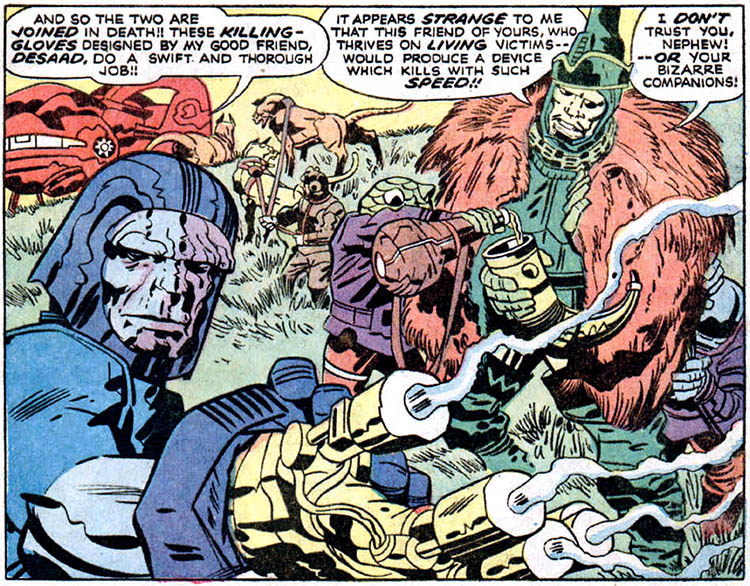

If anything, New Gods was too rich in ideas. There simply is so much there to work from, so many concepts on which one can expand. This was the special talent of Kirby on almost every comic His work was so rich, so filled-to-overflowing with ideas, that writers still fight to take over the characters he began. What most impresses me about it is that, with every reading, I find something that wasn't there before. Mike Royer, who embellished the latter half of the run, came as close as anyone could.)

(And with no disrespect to any of our industry's fine artists, there has never been, nor will there ever be, anyone who could have inked that work and captured 100% of what was in those pencils.

My contribution was darn close to non-existent, for New Gods was a unique and deeply-personal work - one that I have read maybe a hundred times since I first read it, right off Jack's pencilled pages. Kirby at the time, so I got to be on the premises as he brought forth this masterpiece. I had the honor of being an utterly-useless assistant to Mr. I love the comic and I even more loved the guy who did it. Now, before I explain why, I want to discuss my objectivity on this topic. I think New Gods and its allied titles are a work of genius from one of the few folks in comics to whom that overused mantle clearly applies. Nevertheless, what follows is my highest recommendation and noodging. I did the foreword for the collection, but I've been paid in full for it, and stand to gain nada if you buy it. DC is about to release a collected paperback book of Jack Kirby's New Gods comics of the early-seventies. I almost never plug stuff in this column that could mean a nickel to me, and this week is no exception. I'll explain in a minute what this has to do with this week's topic. Now and forever, his symphonies and orchestral works are performed, including the well-known "Trout Quintet" for violin, viola, cello, double bass, and piano, and the "String Quintet in C Major" but his best-known work is undoubtedly his immortal "Unfinished Symphony." When Franz Peter Schubert passed away in 1828, he left behind an amazing legacy of music - hundreds of compositions which are performed to this day.


 0 kommentar(er)
0 kommentar(er)
